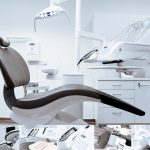On Monday 4th January, Scotland’s First Minister, Nicola Sturgeon, announced that from midnight (5th January), the country would be put into a full lockdown as Coronavirus cases continue to surge. Just hours later, Prime Minister Boris Johnson spoke to the nation in a pre-recorded televised announcement, confirming that England too would enter a new national lockdown – one that resembled more the one from March/April 2020. The new lockdown, which sees schools once again closed in another government U-turn, will reportedly not affect dentistry – on the surface at least.
The original lockdown during the Spring of 2020 saw dental practices closed for almost three months. They were able to reopen from 8th June, although it was a slow start for many as the profession grappled with new SOP measures in efforts to prevent the spread of Covid-19. Patient numbers remain much lower than pre-pandemic, in part due to increased fallow time.
As Scotland enters its latest lockdown, the British Dental Association (BDA) has ‘received confirmation from the Chief Dental Officer that the national lockdown from 5th January will have no impact on dentistry’. The Association has ‘argued that the full range of NHS treatments should not be available while the new virus strain continues to spread significantly. However, the Scottish Government’s position remains unchanged’ as: essential travel includes leaving home for healthcare and dentistry is deemed essential healthcare, meaning it can therefore continue under the revised restrictions announced by the First Minister. The BDA also states that ‘aesthetic treatment is not essential healthcare (and not available on the NHS) and should not be undertaken’.
Scotland’s CDO, Tom Ferris, also reiterated, via the BDA, that if a patient attends a dentist with a concern then the full range of clinical dental care should remain available to the dentist in order to manage the patient’s condition.
Meanwhile, CDO England, Sara Hurley, issued an update immediately following Boris Johnson’s announcement of England’s latest lockdown measures, confirming that ‘dental services are to remain open and see patients’.
Hurley noted that dental professionals are defined by the Government as critical workers, adding: ‘Dentistry is an essential medical service. It is a priority for the NHS. Patients are entitled to travel for medical appointments, include dental. I have included some useful resources in this bulletin for NHS practices to spread the word that dental services are open and seeing patients, please use them.’
The Government guidance on the national lockdown states: ‘The majority of public services will continue and you will be able to leave home to visit them. These include the NHS and medical services like GPs and dentists.’
The BDA also reiterated that ‘services should be carried out in line with the current standard operating procedure (SOPs) . Remote consultation, triage and risk assessment remain key prior to patient attendance for face to face dental care. Social distancing measures remain in place and PPE levels as stated for low, medium and high risk assessed patients remain.’
While dental practices remain open for business unlike last Spring, there will most likely be an impact felt as more patients opt to stay home rather than attend appointments, among other factors. Therefore, the BDA has issued an open letter to Health Secretary Matt Hancock, urging the government to abandon NHS targets that will be ‘impossible to achieve under the new national lockdown, and which risk putting hundreds of practices out of business’.
In addition to patients’ reluctance to continue with dental appointments, the BDA believes that ‘the NHS targets will force dentists to prioritise routine check-ups for the “worried-well” over a time-consuming urgent backlog’. MPs are set to debate the imposition of these targets at a Backbench Business debate on 14 January.









